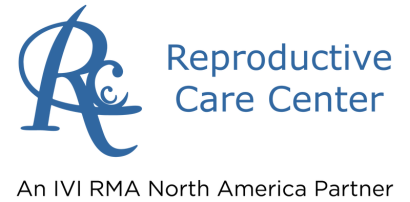What is the Best Way To Get Pregnant
As infertility specialists, we are often asked “what is the best way to get pregnant”? To couples who have easily conceived without any prior thought or planning, this question might seem superfluous. For those who have struggled to get pregnant, though, a question like this is a highly emotional request for guidance, and we are always happy to share with them what we have learned over our long careers reproductive endocrinologists.
Fertility issues are more common than some might realize. The fact is, statistics from The Centers for Disease Control show that 6.7 million women in the U.S. — about 11% of the reproductive age population– have difficulty getting pregnant or carrying a pregnancy to term. Some are surprised to find out infertility affects women and men equally. According to the American Society for Reproductive Medicine, in approximately 40% of infertile couples, the male partner is either the sole cause or is a contributing cause of the problem.
So back to the original question: What can be done to potentially help get pregnant more easily? The answer is not always a simple one, depending on the reason(s) a particular couple is unable to conceive. Rarely is it a simple issue of timing but if that is the case, our general recommendation for a woman with regular cycles, is to begin having intercourse on day 10 after her period begins, then every other day through cycle day 18. In the majority of women with 28-day cycles, ovulation occurs on or about day 14 and once release of the egg from the ovary has occurred (usually by day 14 or 15), additional sexual contact is unnecessary.
Ovulation Predictor
Ovulation predictor kits can help to estimate the timing of ovulation by identifying the “surge” of LH (luteinizing hormone) that precedes ovulation by approximately 36 hours. However, if a couple waits for a positive surge before having intercourse, they may be too late. The most fertile period in the cycle begins at least two to three days prior to ovulation, and intercourse needs to begin at least one or two days prior to the surge. Unfortunately, there is no perfect method to determine when that surge day will be, thus the recommendation to start having sex on day 10, well before the surge and ovulation occurs.
Coital Technique
Coital technique can help to increase the chances of conception. The best position for intercourse is with the woman on her back so that she can retain most of the semen in the vagina for a short time after ejaculation. After about 10 to 15 minutes, the sperm that remain alive in the reproductive tract have already entered the cervical mucus and the sperm left in the vagina are dead or are dying, and no longer functional.
Lifestyle Changes for Fertility
Lifestyle factors such as weight (both too much and too little), consumption of alcohol, smoking, stress, environmental toxins, and diet can interfere with one’s ability to conceive. Positive changes to these factors can help improve chances of fertility.
These relatively simple instructions are not applicable for couples that have significant ovulation dysfunction, low sperm counts, or problems with the uterus and/or fallopian tubes. These types of issues most often require assistance from a reproductive specialist in order for a couple to conceive.
If a woman is not able to get pregnant after 1 year of trying, we recommend she and her husband consult with an infertility specialist. For women 35 and older, that consultation should occur not later than after 6 months of trying, as time is of the essence as women get older due to deteriorating egg quality.
The good news is that many of our patients unable to conceive on their own are able to get pregnant with relatively simple treatments that don’t require more expensive, invasive procedures. However, when basic interventions are ineffective, surgery (laparoscopy) or more advanced reproductive technologies may be required, including in vitro fertilization (IVF), intracytoplasmic sperm injection (ICSI), or testicular sperm extraction (TESE), in order to help overcome the problem(s).
Our hearts go out to couples and individuals who have struggled or who continue to struggle with infertility. The greatest joy in our careers has been in the blessings we have received helping our patients grow their families. There is hope. There are options. There are thousands of success stories and our hope and prayer is that pregnancy will become a reality for you as well.
|
|







